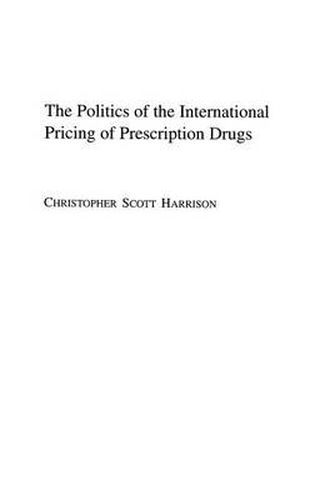Readings Newsletter
Become a Readings Member to make your shopping experience even easier.
Sign in or sign up for free!
You’re not far away from qualifying for FREE standard shipping within Australia
You’ve qualified for FREE standard shipping within Australia
The cart is loading…






Harrison analyzes how the U.S. research pharmaceutical industry, faced with domestic political opposition to the prices it charged for prescription drugs, chose to pursue its policy goal of greater appropriability of its intellectual property through the institutions of foreign economic policymaking.
As Harrison explains, a new body of literature has developed to analyze the emergence of intellectual property as a major international trade issue. For many researchers, the inclusion of trade related intellectual property (TRIPS) into the Uruguay round of the General Agreement on Tariffs and trade (GATT) negotiations marks an important demonstration of the political influence of U.S. knowledge-intensive industries. However, as he demonstrates, a more thorough specification of the domestic political environment reveals that the research pharmaceutical industry was incapable of achieving its domestic policy objectives at the same time that it is credited with immense international political power.
By providing a theory of institutional choice, Harrison reconciles this incongruity. He explains the strategic choices of the research pharmaceutical industry as a function of the transaction costs associated with pursuing its policy objectives within a variety of institutional alternatives. He concludes that he internationalization of intellectual property rights was a result of the changing domestic political environment in which the research pharmaceutical industry found itself the loser in a series of domestic economic policy battles. A thoughtful analysis of particular important to scholars, researchers, and policy makers involved with international trade, intellectual property, the pharmaceutical industry, and public policy.
$9.00 standard shipping within Australia
FREE standard shipping within Australia for orders over $100.00
Express & International shipping calculated at checkout
Harrison analyzes how the U.S. research pharmaceutical industry, faced with domestic political opposition to the prices it charged for prescription drugs, chose to pursue its policy goal of greater appropriability of its intellectual property through the institutions of foreign economic policymaking.
As Harrison explains, a new body of literature has developed to analyze the emergence of intellectual property as a major international trade issue. For many researchers, the inclusion of trade related intellectual property (TRIPS) into the Uruguay round of the General Agreement on Tariffs and trade (GATT) negotiations marks an important demonstration of the political influence of U.S. knowledge-intensive industries. However, as he demonstrates, a more thorough specification of the domestic political environment reveals that the research pharmaceutical industry was incapable of achieving its domestic policy objectives at the same time that it is credited with immense international political power.
By providing a theory of institutional choice, Harrison reconciles this incongruity. He explains the strategic choices of the research pharmaceutical industry as a function of the transaction costs associated with pursuing its policy objectives within a variety of institutional alternatives. He concludes that he internationalization of intellectual property rights was a result of the changing domestic political environment in which the research pharmaceutical industry found itself the loser in a series of domestic economic policy battles. A thoughtful analysis of particular important to scholars, researchers, and policy makers involved with international trade, intellectual property, the pharmaceutical industry, and public policy.